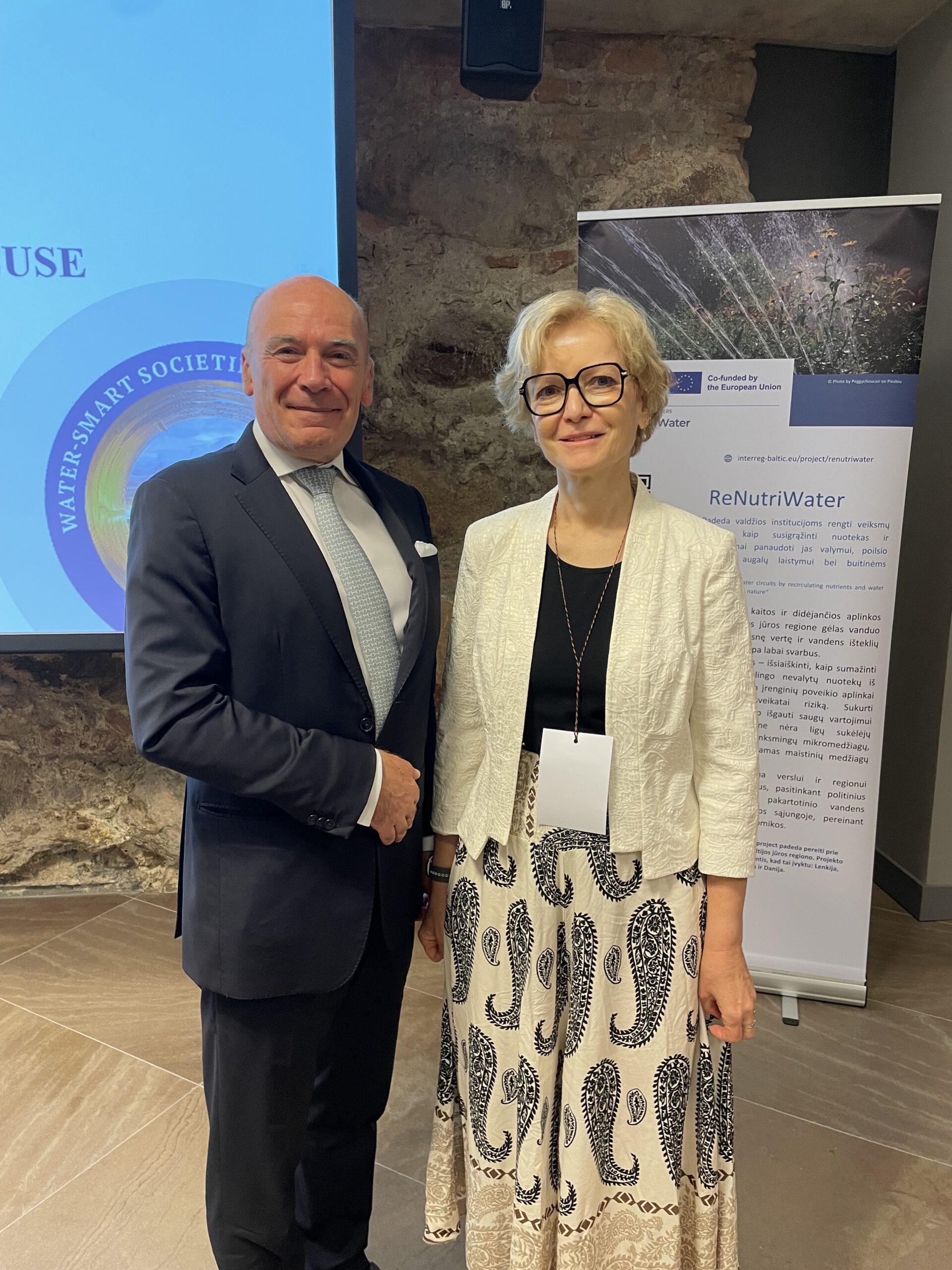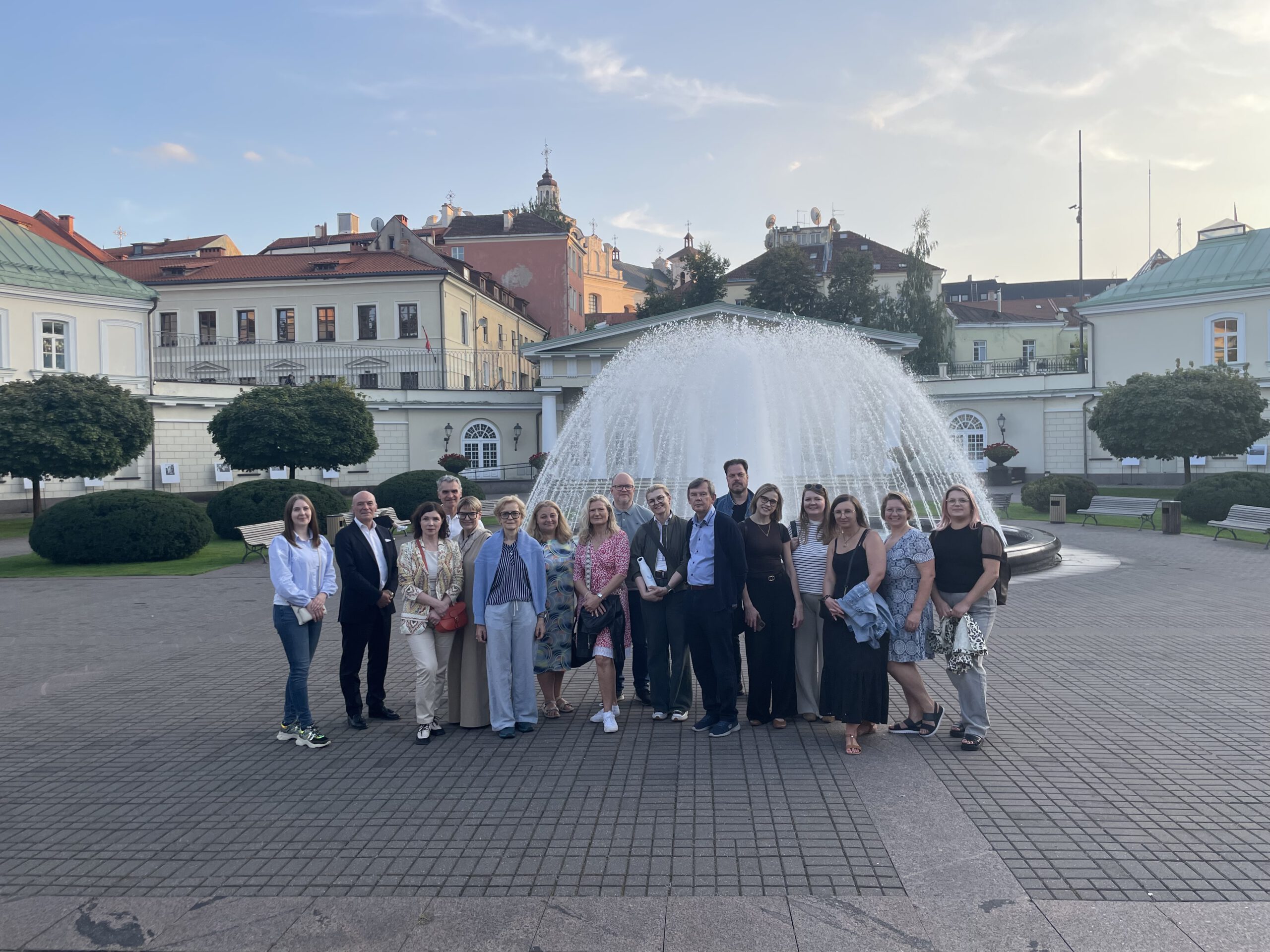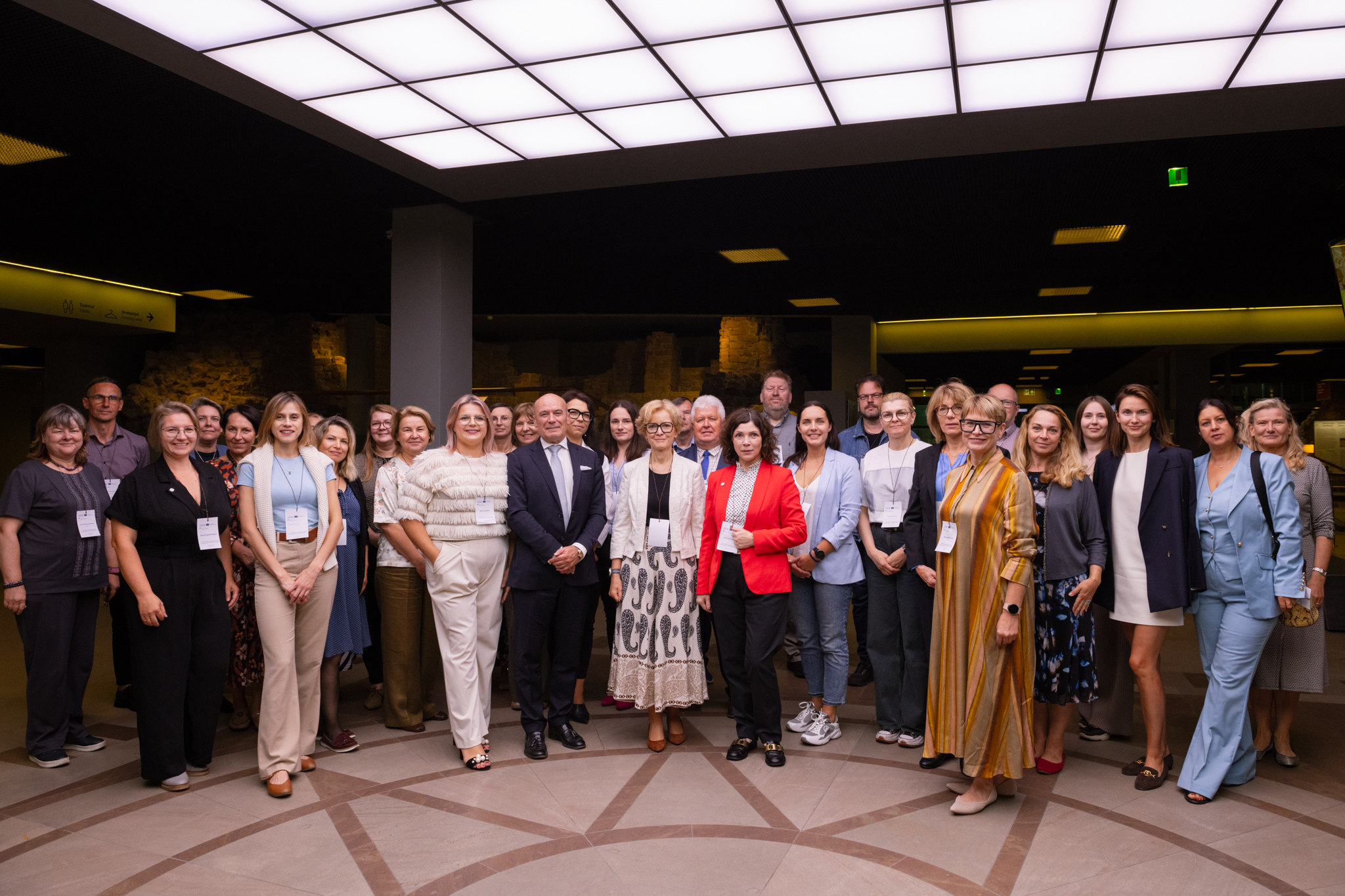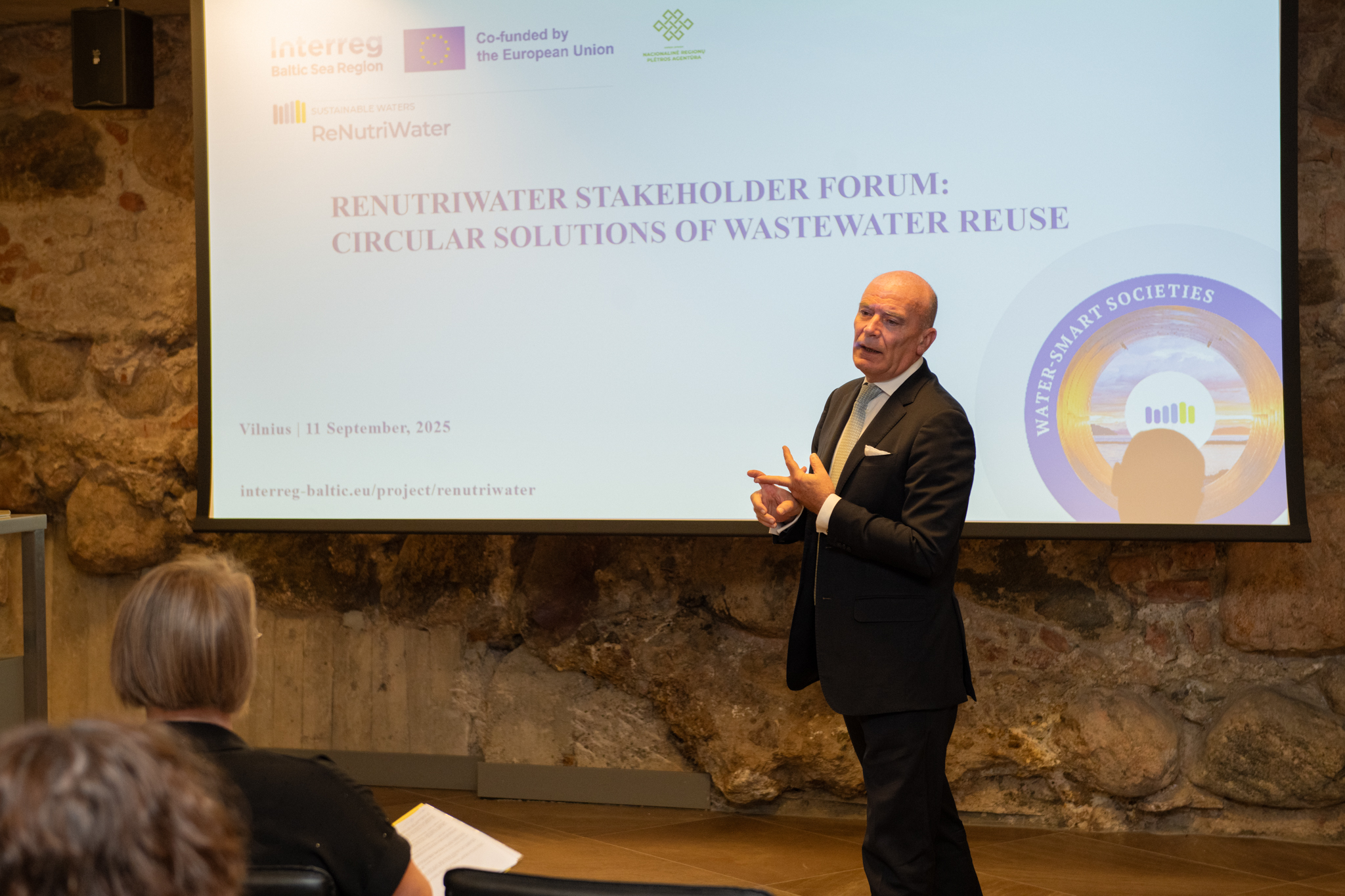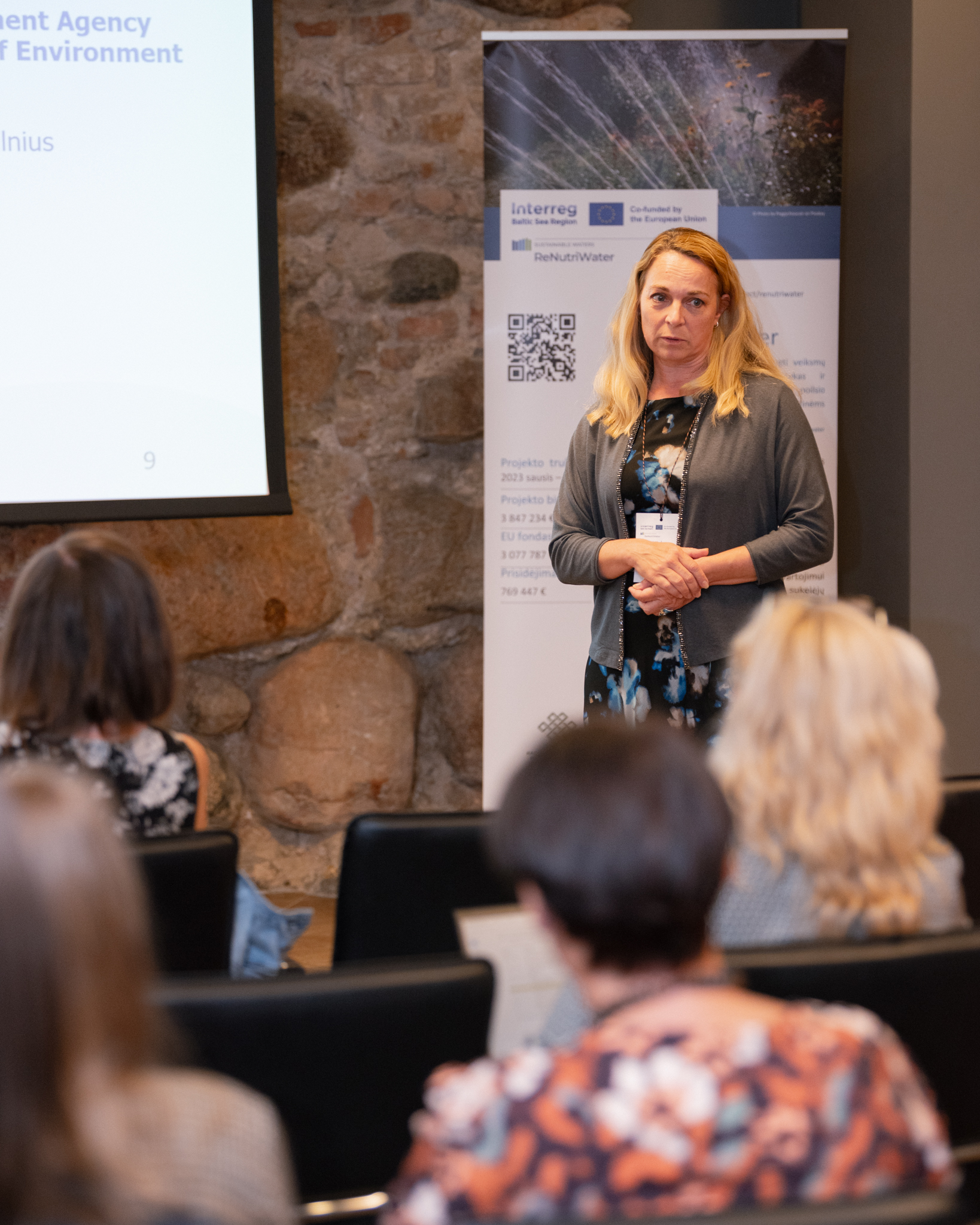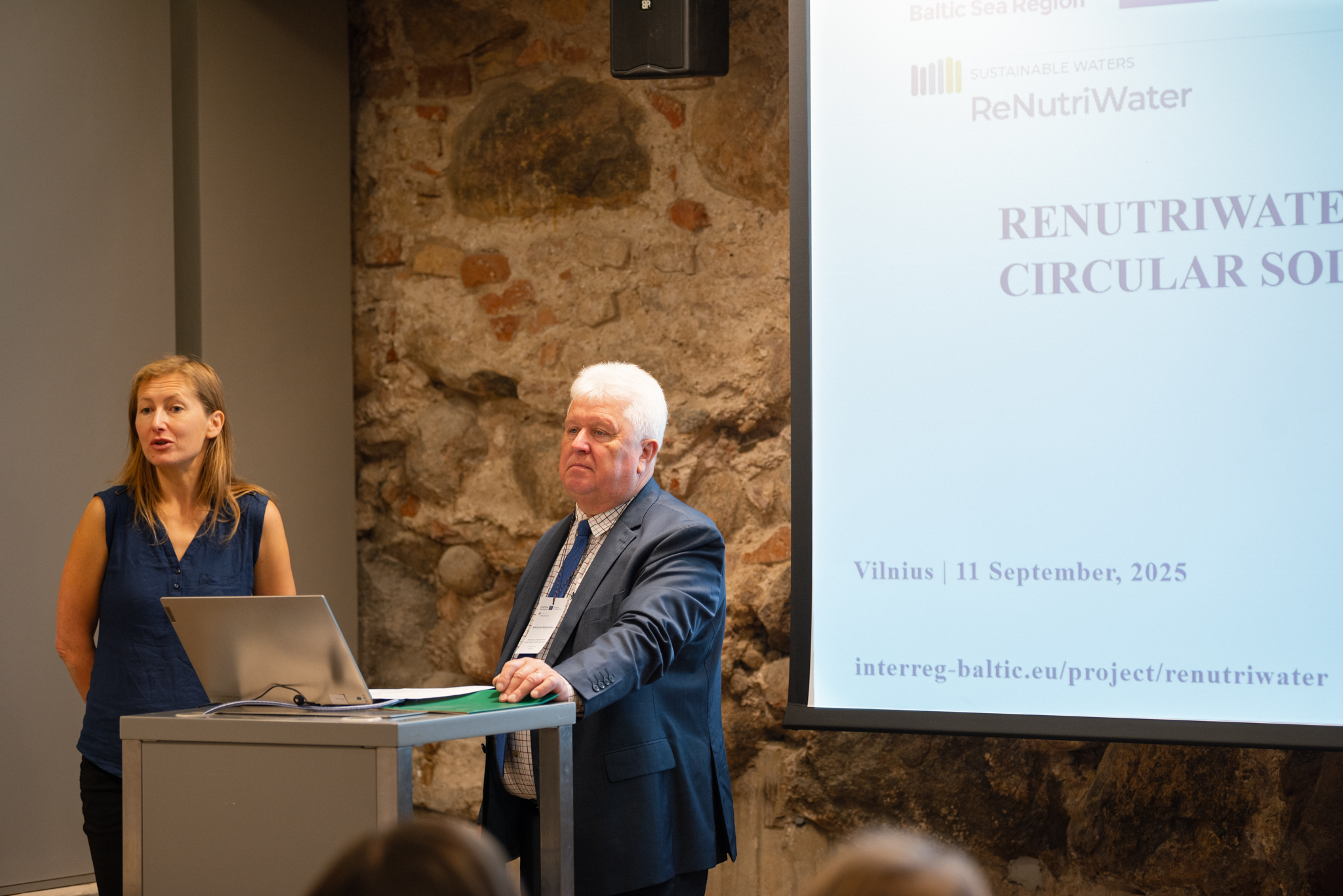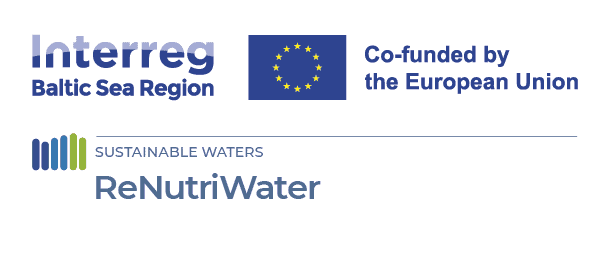
ReNutriWater Stakeholder Forum in Vilnius Focused on Circular Wastewater Reuse
16 September 2025
The meeting, organised by ReNutriWater’s Lithuanian partner National Regions’ Development Agency (NRDA), began on Wednesday evening with a warm welcome and a guided tour of Vilnius Old Town. Under sunny late-summer skies, project partners enjoyed the historic streets, cultural stories (and legends!), and the chance to reconnect in person. The evening concluded with a relaxed get-together, setting the stage for the next day’s program.
Thursday’s Stakeholder Forum took place at the National Museum of the Grand Duchy of Lithuania. Just as the palace once brought together voices from across Europe, it now served as a stage for stakeholders to exchange ideas and plan for a more resilient water future.
The Forum offered a diverse and engaging programme of presentations. The day began with a keynote by Pietro Francesco de Lotto, member of the European Economic and Social Committee (EESC), who addressed Europe’s water resilience strategy and the new challenges facing policymakers, businesses, and communities. He emphasized that now is the time for collaboration rather than fragmentation, underlining the importance of sharing results collectively with different actors and bringing diverse perspectives together. De Lotto also highlighted that, at the European level, around 60% of freshwater consumption is used in agriculture, 30% in industry, and less than 10% in households. According to him, it is crucial to encourage the main users of freshwater to invest more in water efficiency, reuse, and recycling – an area that offers enormous opportunities for innovation, sustainable water management, expanding water reuse, and safeguarding fresh drinking water. This call for unity and action set the tone for a day focused on working together and advancing shared goals.
Following the keynote, ReNutriWater project leader Klara Ramm and Lithuanian expert guest speakers Agnė Prušinskaitė from the Ministry of Environment of the republic of Lithuania, Ieva Pociūnienė from Environmental Project management Agency (EPMA), and author Selemonas Paltanavičius shared their perspectives on sustainable wastewater reuse, innovative practices emerging in new projects, and the importance of early education in shaping future water-conscious generations. Their contributions highlighted how both technical innovation and social awareness are crucial for lasting impact.
The programme was also enriched by Interreg initiatives such as EMPEREST, TRUST ALUM, and LAKES GO DIGITAL, showcased by Vaiva Ramanauskienė and Daiva Jonuškienė. These presentations highlighted practices in sustainable water treatment and ecology, ranging from advanced treatment technologies to real-time monitoring of water quality, and demonstrated how regional cooperation is helping to advance sustainable water and ecological solutions across the Baltic Sea region. These examples underlined the value of joining forces across borders in building resilience and sustainability.
In the afternoon, the forum participants had the exclusive chance to visit the Vilnius wastewater treatment plant (WWTP), currently the most modern facility in the Baltics, operated by the company Vilniaus vandenys. During the visit, Matas Leščinskas, Head of Operations at the plant, outlined how recycled wastewater could be used more efficiently within the facility itself. For example, processes such as cleaning mechanical screens or centrifuges currently rely on freshwater, but could instead make use of so-called technical water, bringing significant savings. He also pointed out that creating such recycled water would mean investing in equipment like UV disinfection systems, adding costs, yet ultimately offering the most sustainable and future-oriented option.
The Forum concluded with a joint dinner in Vilnius, leaving participants inspired to continue building solutions for water resilience together.
